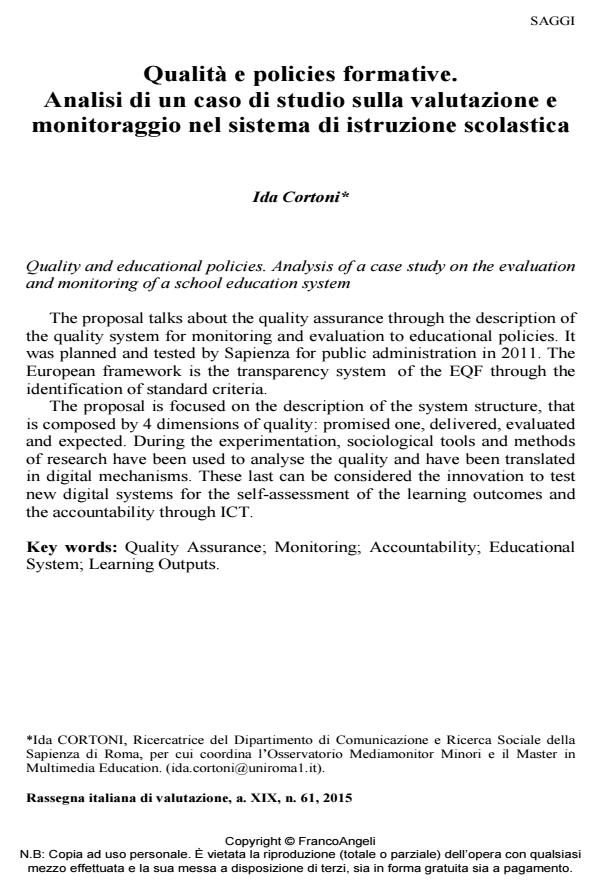Quality and educational policies. Analysis of a case study on the evaluation and monitoring of a school education system
Journal title RIV Rassegna Italiana di Valutazione
Author/s Ida Cortoni
Publishing Year 2016 Issue 2015/61
Language Italian Pages 21 P. 7-27 File size 138 KB
DOI 10.3280/RIV2015-061002
DOI is like a bar code for intellectual property: to have more infomation
click here
Below, you can see the article first page
If you want to buy this article in PDF format, you can do it, following the instructions to buy download credits

FrancoAngeli is member of Publishers International Linking Association, Inc (PILA), a not-for-profit association which run the CrossRef service enabling links to and from online scholarly content.
The proposal talks about the quality assurance through the description of the quality system for monitoring and evaluation to educational policies. It was planned and tested by Sapienza for public administration in 2011. The European framework is the transparency system of the EQF through the identification of standard criteria. The proposal is focused on the description of the system structure, that is composed by 4 dimensions of quality: promised one, delivered, evaluated and expected. During the experimentation, sociological tools and methods of research have been used to analyse the quality and have been translated in digital mechanisms. These last can be considered the innovation to test new digital systems for the self-assessment of the learning outcomes and the accountability through ICT.
Keywords: Quality Assurance; Monitoring; Accountability; Educational System; Learning Outputs.
Ida Cortoni, Qualità e policies formative. Analisi di un caso di studio sulla valutazione e monitoraggio nel sistema di istruzione scolastica in "RIV Rassegna Italiana di Valutazione" 61/2015, pp 7-27, DOI: 10.3280/RIV2015-061002